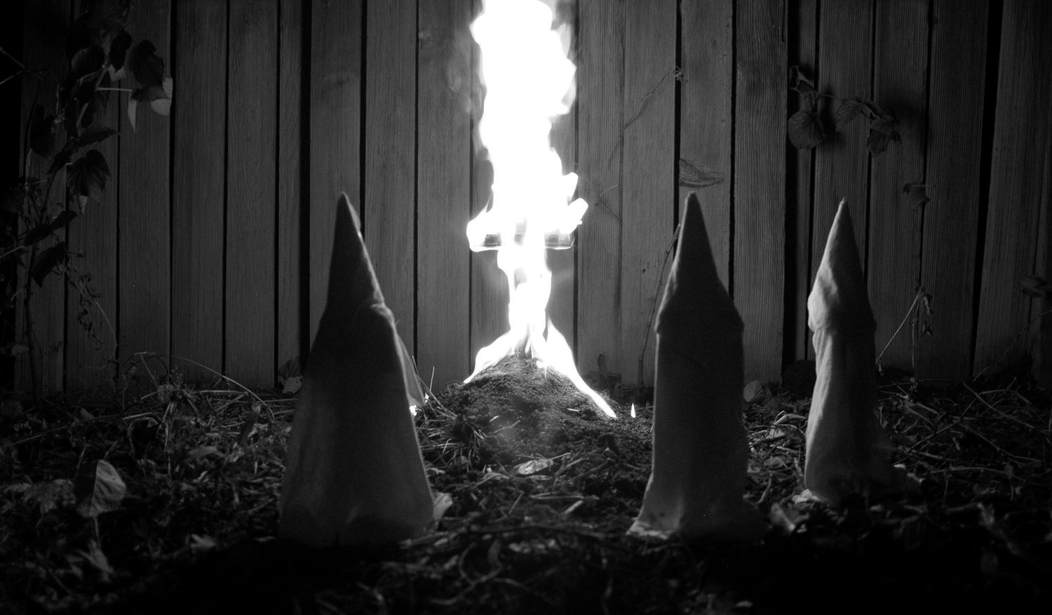The A&E television network is set to launch a new documentary series about the Klu Klux Klan, named “Generation KKK,” in January, but the announcement has already kicked up a storm of controversy.
“There should be an immediate boycott of A&E and all of its sponsors as they normalize the KKK with a reality series,” tweeted The Wire actor Wendell Pierce. He finished with a Trumpian one-word sign-off, “Abhorrent.”
There should be an immediate boycott of A&E and all of its sponsors as they normalize the KKK with a reality series. Abhorrent
— Wendell Pierce (@WendellPierce) December 19, 2016
Author Olivia Cole warned that such shows “normalize” white supremacist groups could inspire another Dylan Roof, the shooter at the Emmanuel AME Church in Charleston, South Carolina.
Normalization and legitimization = giving cute names like Alt-Right and Generation KKK to violent white supremacists. This makes a Roof.
— Olivia A. Cole is on hiatus for first time ever (@RantingOwl) December 19, 2016
But the network has always been clear about its opposition to the Klu Klux Klan’s values. “We certainly didn’t want the show to be seen as a platform for the views of the KKK,” A&E General Manager Rob Sharenow told The New York Times. “The only political agenda is that we really do stand against hate.”
“We had a stance, and we were clear with folks that we were hoping for them to see the light and to come out of this world,” filmmaker Aengus James, an executive producer of the series, told The Times. “It’s an incredibly destructive environment for anybody to be in, let alone children.”
James said he and his fellow producers were “most drawn to … the struggles with the internal families.” When he sent film crews into the South, he aimed to show the Klan as it exists today, at the grassroots level.
Filmmakers didn’t just set out to lift the hood off the KKK, but also to give time to anti-Klan activists. Arno Michaelis, for example, was a founding member of the largest racist skinhead organization on Earth, a reverend of a self-declared “Racial Holy War.” Michaelis rejected white supremacy, however, writing the book My Life After Hate, and joining with the group Serve2Unite.
The film crew introduced the wife of Chris Buckley, a Grand Nighthawk with the North Georgia White Knights, to Michaelis. Buckley’s wife Melissa recounted a confrontation with three black women at a Walmart, after she tried to silence her 5-year-old son’s mimicking of his father’s racial slurs and “white power” salutes.
“I hate to say that I was even at the point of leaving him, because he’s my best friend, he’s my kids’ father, he’s everything to me,” Mrs. Buckley said in a phone interview. “But I got to the point where, if I’m not safe with him, why be with him?”
Buckley was reportedly attracted to the Klan because he found there a camaraderie similar to his Army experience in Afghanistan and Iraq. The group also offered an outlet for the rage he felt toward those he blamed for his emotional and financial struggles.
Understanding the inspiration behind Klan leaders can help others develop alternative organizations not based on white supremacy.
“People involved in hate groups do so because they’re suffering,” Michaelis told The Times. “I really draw upon that truth to respond to their aggression with compassion, and doing so makes a very powerful first impression.”
The best way to understand these people is to report on them, and A&E deserves credit for doing so.
The Southern Poverty Law Center (SPLC) has estimated the number of independent Klan chapters in the United States — there is no national organization — grew from 72 to 190 between 2014 and 2015. The Anti-Defamation League estimated group membership at 3,000, while the SPLC placed it between 5,000 and 8,000.
Even if these are overestimates (the SPLC is not known for a lack of bias — it ranks the Family Research Council among “hate groups”), white supremacy is indeed alive and with the alt-right it could even be said to be well.
Perhaps ironically, one of the likely drivers of this movement is the increasing racial advocacy on the left. As political correctness latched into overdrive in the past two years, universities ran “stop white people” trainings, and “people of color” have blockaded bridges to prevent white people from crossing.
Such actions do not in any way justify racism on the other side, but it seems rather likely they would provoke it. When Stephen Howard, the Imperial Wizard of the North Mississippi White Knights, declared, “We’re here for the preservation of our race and the preservation of our people,” he seemed to truly believe white people are under attack.
These ideas deserve to be rejected, but Americans need to understand where they come from in order to combat them more effectively. Dismissing them as “hate” while promoting the racial grievances of the other side may be reasonable, but it is not likely to win over such people.
Furthermore, it is important to understand exactly what the Klan is doing these days. The group has a very hateful history, but it is fair to ask whether or not the KKK still engages in violence against black people. Even if the organization has changed, that does not make it acceptable — not by a long shot — but anti-racist Americans should know what they are condemning.
A&E’s documentary series is important because it provides needed information, and it hopefully will give impetus for families of Klan leaders to take a stand against racism. The series does not “normalize” white supremacy, but it just might reveal the causes behind it, and point Americans toward the best way of defeating groups like the KKK by depriving them of members.
If other civic organizations can redirect people away from white supremacy, should they not understand how to do so?









Join the conversation as a VIP Member